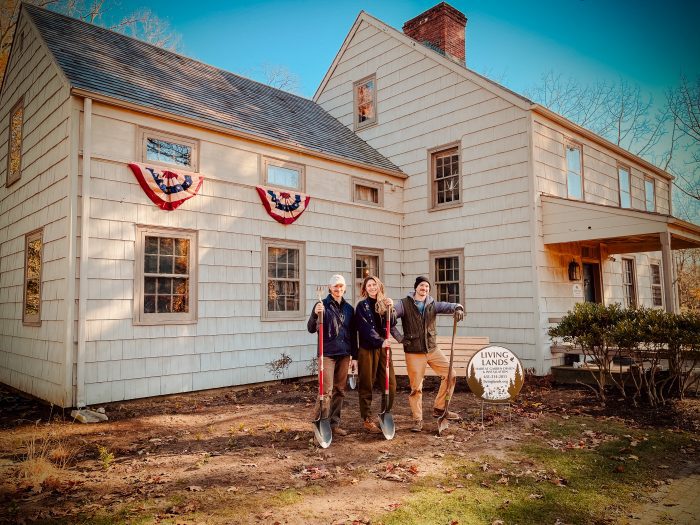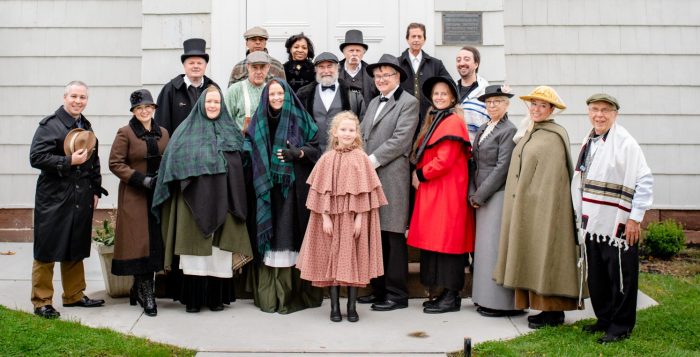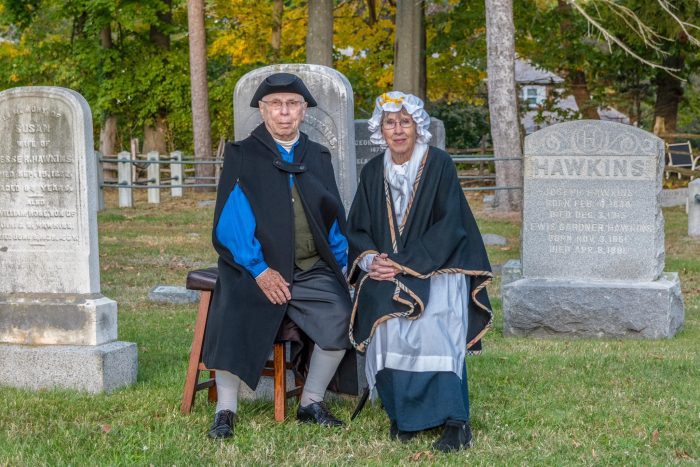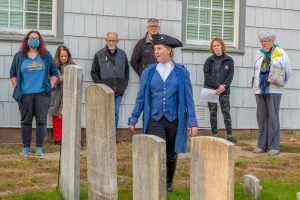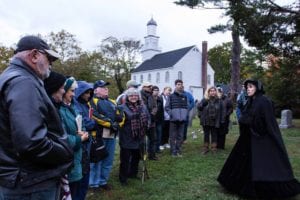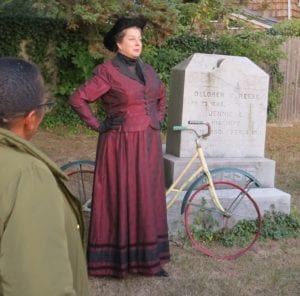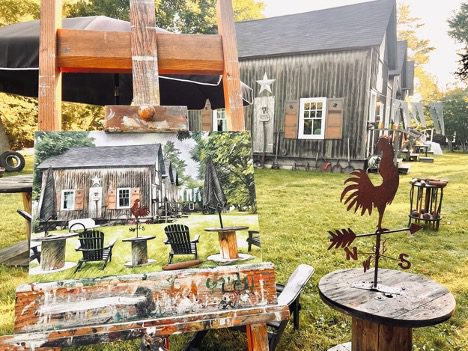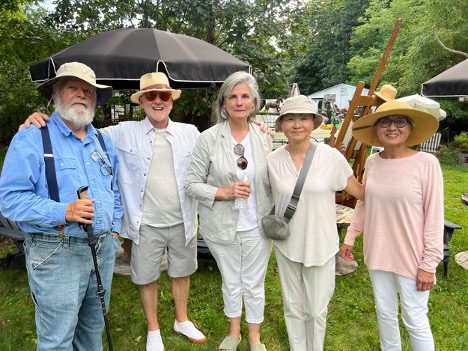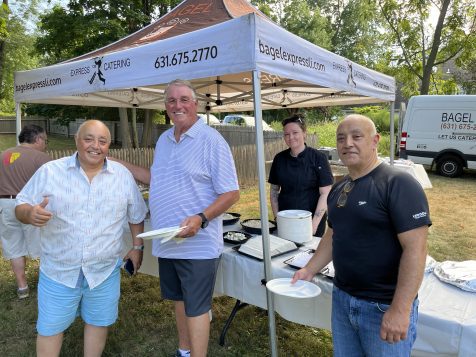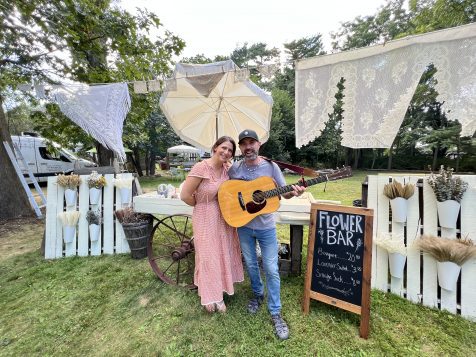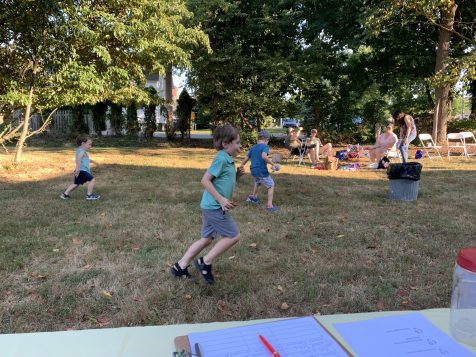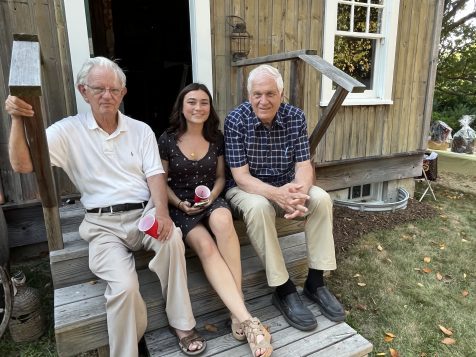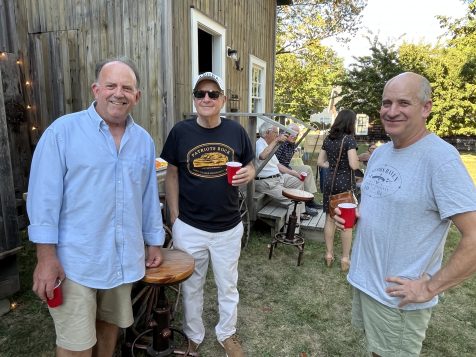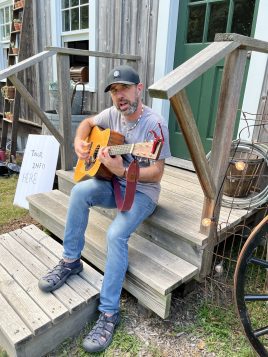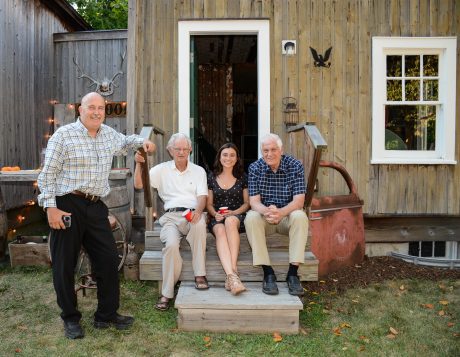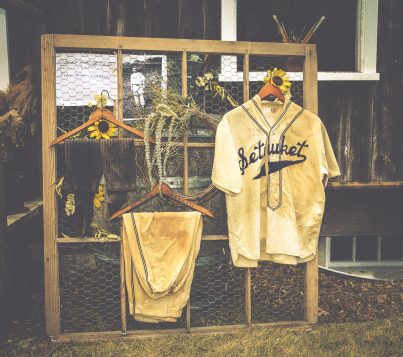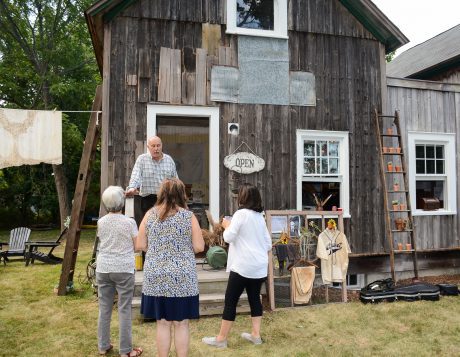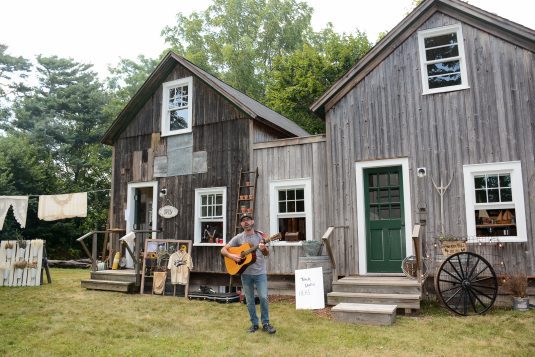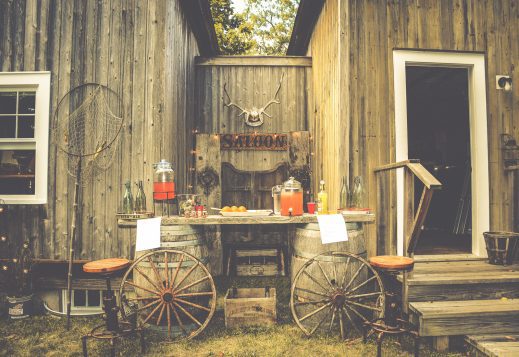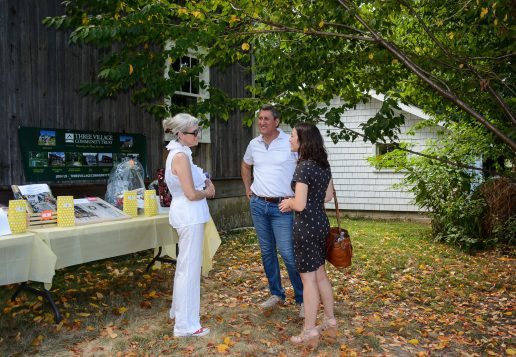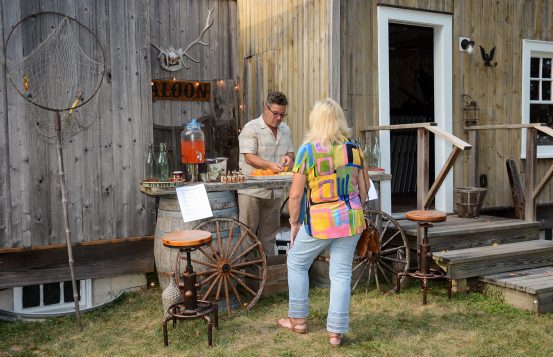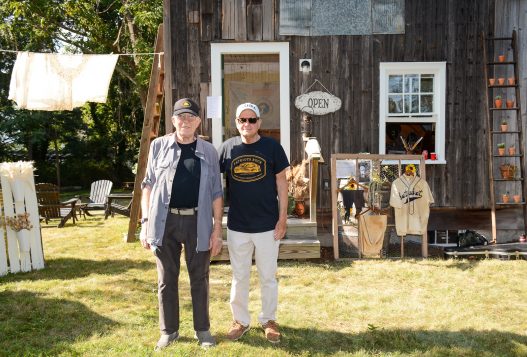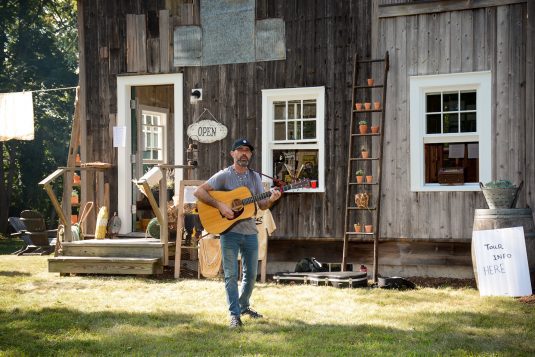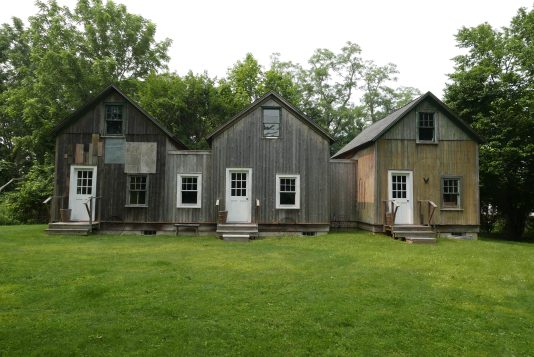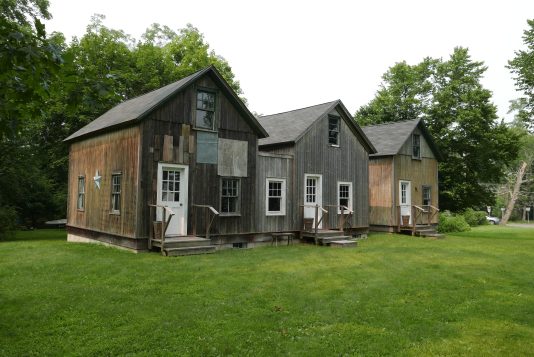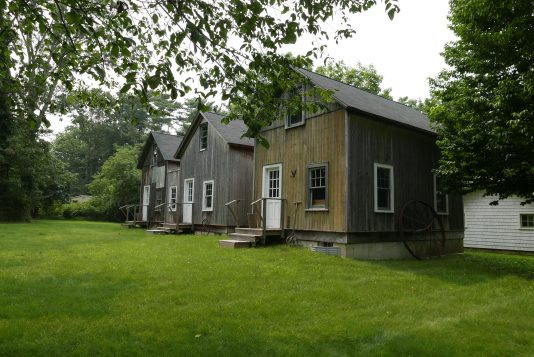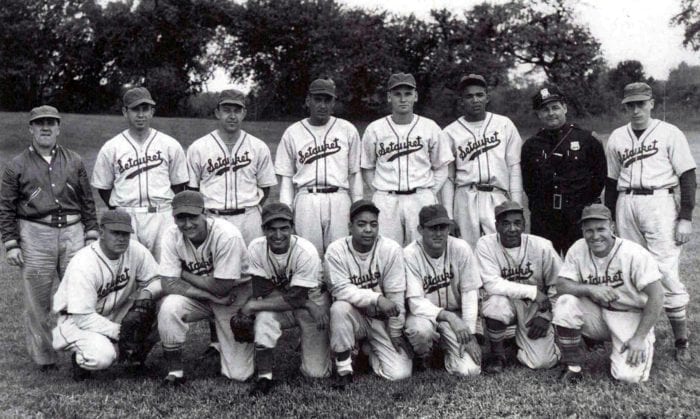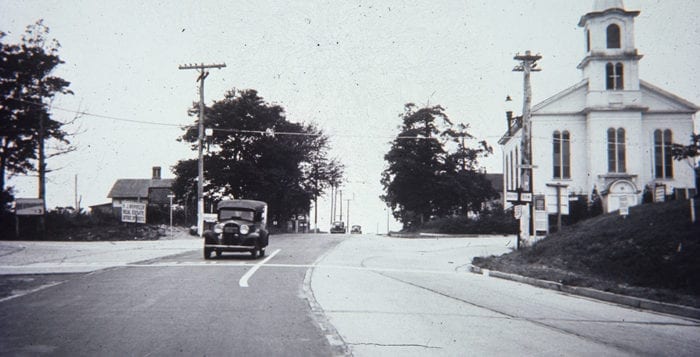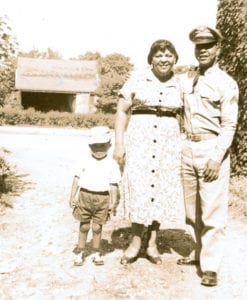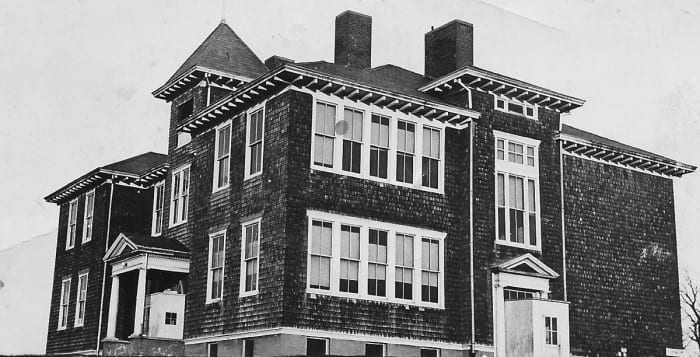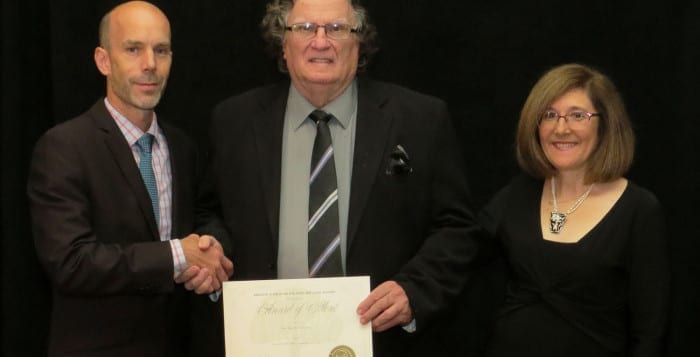Three Village Historical Society broke ground last week on a project to install a series of gardens surrounding its main building on North Country Road, courtesy of a $10,000 outdoor commerce and beautification grant from PSEG Long Island.
The gardens will include a pollinator pathway, colonial kitchen garden, indigenous medical garden and sensory garden, all with native plants, according to Kimberly Phyfe, development coordinator for TVHS. She added that the plan also includes garden paths, educational signage and some additional trees.
“This is going to be a teachable educational space,” she said. “You’re going to be able to walk through a timeline of history.”
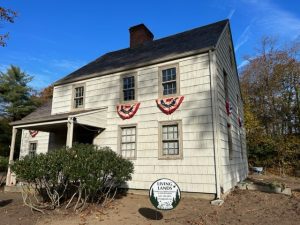
At a Friday, Nov. 10, “garden party,” an estimated 20 community volunteers, including some members of the Three Village Garden Club and the historical society’s grounds committee, participated in clearing most of the ground cover, invasive species and weeds to prepare for the project, which is headed up by Living Lands, a North-Shore based garden design and installation company that specializes in native habitats and ecological restoration, primarily on a residential level.
Living Lands co-owners Logan Kjep and Alexandra Getches said they feel honored to be part of such a community-facing project to highlight the beauty and usefulness of native plants.
“Getting to find out the history of the plants and the way they were used in the past has been really interesting because we focus more on their role in ecology,” Getches said. “Investigating how the indigenous people used them, how the colonists used them was really fascinating.”
The PSEGLI grant is typically for downtowns or business districts. Phyfe said when the representative originally stopped by last spring on a Monday at 10 a.m., all was quiet on the stretch of North Country Road where the society sits.
She said she urged him to return on a Friday afternoon during the farmers market so he could “see this town taken over by small businesses, locally owned; food trucks, music, education, entertainment — everybody is here on a Friday night. I think that’s what really did it.”
Phyfe added that the market brings business to neighboring establishments and acts as the start of historic Setauket. “Welcome to Culper country — this is the home of historic American Revolution stories right here in Three Village,” she said.
Phyfe called the gardens an “outdoor classroom and teaching garden space” that will be available even when the museum and visitor center is closed, and will expand on the education provided by the Culper Spy and Chicken Hill exhibits, which can host only small groups at a time during student or Scout visits.
She said the sensory garden will be particularly friendly to students with sensory processing disorder. “I want to make learning and field trips accessible to learners of all ages, and particularly learners with disabilities and special needs,” she said.
Phyfe indicated the garden project should be completed by Thanksgiving.

